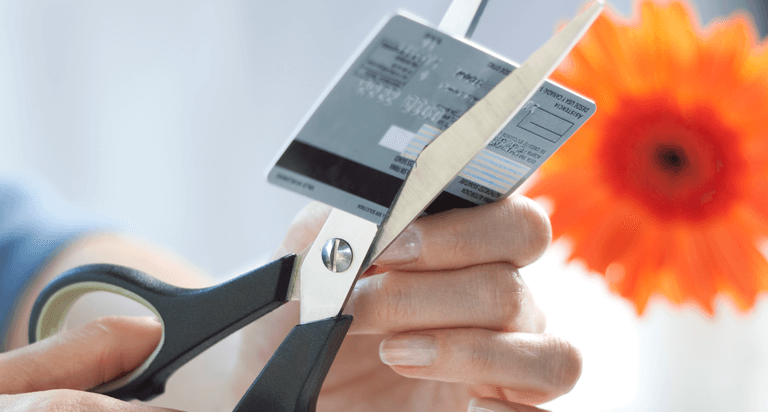Increasing Your Credit Card Limit vs. Opening a New Credit Card


Highlights:
- If you're looking to increase your access to credit, you can either ask your credit card company to increase the limit on your existing account or open a new credit card altogether.
- Credit card issuers may be more likely to raise your limit if your financial circumstances have recently changed for the better, such as if your credit scores have increased or if your income has increased.
- Whether you opt to raise your credit limit or take out another credit card, you'll need to focus on paying back your debt and maintaining a positive credit history.
Credit cards are a common source of financing for day-to-day expenses, as well as larger purchases. However, as your financial situation changes over time, your credit card may need to grow with you.
If you're looking to increase your available credit, you generally have two options. You can ask your credit card company to raise the limit on your current account, or you can open a new credit card altogether.
What is a credit card limit increase?
Credit cards, like other types of revolving credit, provide borrowers with access to an ongoing line of credit. However, these funds aren't unlimited. Credit card providers restrict your spending by setting a credit card limit. This is the maximum amount that you can charge to your card.
Credit card limits are set by your provider according to a range of factors, including your:
- Credit scores
- Credit reports
- Income
- Payment history
- Existing debts
Over time, your credit card provider may increase your limit automatically. But you can also contact your provider and request a credit limit increase for yourself.
Asking for an increase does not guarantee that you'll get one. However, credit card issuers may be more likely to raise your credit limit when your financial circumstances have recently changed for the better. It's generally best to apply for a credit limit increase when:
- Your credit scores have gone up. If you've recently paid off a big loan or a negative credit event has dropped off your credit reports, you may be in a good position to ask for a higher credit limit.
- You've received a salary increase. Because your credit limit is tied to your income, a larger salary can translate into a higher credit limit. Credit card providers may feel secure offering more credit to account holders who have the resources to pay their debts.
You can generally apply for an increase online or over the phone — just be prepared to provide details about your finances and your employment.
Pros of asking for a credit limit increase
- Boosts your spending power. A higher credit limit gives your greater flexibility to fund expensive purchases, including emergency expenses.
- Lowers your credit utilization ratio. Your credit utilization ratio, generally expressed as a percentage, is the amount of revolving credit you're using divided by the total revolving credit available to you. Your credit utilization ratio is a factor in how your credit scores are calculated. Lenders typically prefer that you use no more than 30% of your total available credit. So, if you have existing revolving debt, raising your credit limit may bring down your credit utilization ratio. Your credit scores may be positively affected as a result.
- Keeps your payments in one place. Raising the credit limit on your existing credit card rather than opening a new one helps prevent you from owing debts to multiple lenders. This may make it easier to repay your debts each month.
Cons of asking for a credit limit increase
- May lead to additional debt. When you have access to more credit, you may be tempted to spend more than you can pay off.
- Could result in a hard inquiry that may decrease your credit scores. Applying for a credit limit increase may result in a type of credit check known as a hard inquiry, which could temporarily hurt your credit scores.
When to consider a new credit card
If raising the credit limit on your current card isn't feasible, you might try opening a new account. This option can be especially helpful for borrowers who have only one credit card to begin with. Having two to three credit cards, in addition to loans and other types of credit, may help improve your credit mix, which is one factor that determines your credit scores.
However, as is the case with a limit increase, simply applying for a new card does not guarantee you will be approved. You'll also need to meet the issuer's credit score, income and other requirements.
Pros of opening a new credit card
- Expands your spending power. Combining the credit limits from several credit cards increases your borrowing capacity. This also expands your ability to pay for emergency expenses.
- Provides new perks. A new credit account offers a unique advantage: the chance for more credit card rewards. Applying for a card that offers points, cashback on purchases or travel rewards can help you make the most of your spending. You may also be eligible for certain sign-up bonuses like a temporary 0% APR.
- May improve your credit utilization ratio. Opening a new credit card can have the same effect on your credit utilization ratio as securing an increased credit limit on an existing card. That means it's also an opportunity to raise your credit scores.
Cons of opening a new credit card
- Increases your exposure to expensive credit card debt. The more credit you can access, the more likely you are to overspend. As credit card interest rates are very high, it's important to avoid carrying a balance that you can't repay.
- May result in a hard inquiry and damage to your credit scores. Opening a new credit card will generally trigger a hard inquiry on your credit reports, which can temporarily knock down your credit scores.
- Could complicate tracking and paying back debts. Adding a new credit card to your wallet means a new set of dates to remember. Be sure to keep careful track of when your billing cycle ends and your minimum payment is due for any new credit accounts.
Whether you opt to raise your credit limit or take out another credit card, you'll need to focus on paying back your debt and maintaining a positive credit history. Whenever possible, pay the balance on each of your credit cards in full every month. Set a monthly budget to keep your spending in line with your means, and use your credit cards primarily to pay for necessary purchases, such as groceries and utilities. With responsible use, your increased spending power can give you greater financial flexibility and leave you better prepared for unexpected expenses.

Sign up for a credit monitoring & ID theft protection product today!
For $19.95 per month, you can know where you stand with access to your 3-bureau credit report. Sign up for Equifax CompleteTM Premier today!



